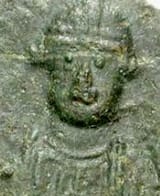>>17803389
>There was also Aurelian who had more lasting results.
Aurelian was not a conqueror and did not portray himself as such. He made no legal works of note and no significant reforms, the only reform of note he did was increasing purity in coinage which didn't really stop the issues.
>No, it wasn't. Even long after his reign more laws against Pagans had to be passed.
It effectively was. Paganism was a tiny minority
>He was lying, Paganism definitely survived as witchcraft and other traditions such as astrology and of course Neoplatonic philosophy.
None of these other than Neoplatonism (which was by nature, an elite only practice) would have even been considered Religio by even pagans. These don't actually represent a religious conviction or practice of sincere paganism. Theodosius II wasn't lying, paganism simply did not matter or have enough members to be notable in daily life or in many elite circles.
>Yeah because it was outlawed, it had to go underground.
They had to go underground, to their very public careers in administration and curial politics. Debating philosophy was never outlawed, it was in fact perfectly acceptable, even begrudgingly by more zealous bishops. Justinian disbanded the schools, not the practice, or even their ability to form a community or group. Even 140 years before in Rome when many pagan practices were outlawed, pagan senators like Symmachus still underwent pagan rituals and the actions of the priesthood along with others in his order. People knew they were doing this, and most laws hardly affected what they did such as banning sacrifices at temples, which simply just didn't even happen anymore even without the ban. Groups of pagans were overlooked in their activities for elite circles as long as it was not an open public affair.

